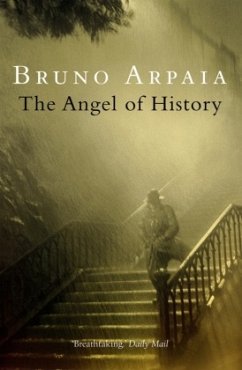A re-imagining of Walter Benjamin's final days during World War II, which won the Campiello Prize. '...the writing shimmers on the page with memorable images' Jay Parini, "Guardian"
For a brief moment in 1940 the lives of a young Spanish militant and a reclusive academic of German and Jewish heritage are thrown together.
Along with thousands of others across Europe, both men have fled their homeland in the face of fascist persecution. Yet, until the day their paths converge on a remote mountain pass between France and Spain, their experience of war has been vastly different.
Based on true events of Benjamin's life, and ranging from Paris' Left Bank to the prison camps of southern France, The Angel of History explores how the history we think we know is not a series of events but rather a constellation of countless individual lives. And although every story is unique, each is founded on the same human desire - to be remembered.
Hinweis: Dieser Artikel kann nur an eine deutsche Lieferadresse ausgeliefert werden.
For a brief moment in 1940 the lives of a young Spanish militant and a reclusive academic of German and Jewish heritage are thrown together.
Along with thousands of others across Europe, both men have fled their homeland in the face of fascist persecution. Yet, until the day their paths converge on a remote mountain pass between France and Spain, their experience of war has been vastly different.
Based on true events of Benjamin's life, and ranging from Paris' Left Bank to the prison camps of southern France, The Angel of History explores how the history we think we know is not a series of events but rather a constellation of countless individual lives. And although every story is unique, each is founded on the same human desire - to be remembered.
Hinweis: Dieser Artikel kann nur an eine deutsche Lieferadresse ausgeliefert werden.








